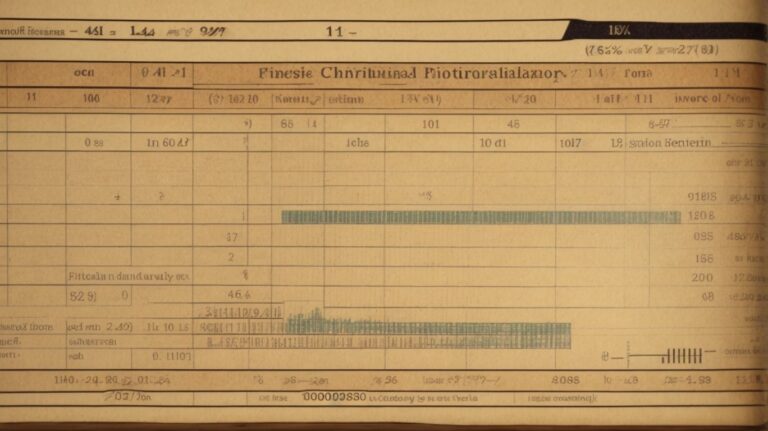Have you ever wondered why people perceive and process information differently? Modality in psychology provides us with a framework to understand these individual differences.
In this article, we’ll explore the various types of modality, including sensory, linguistic, emotional, and cognitive. We’ll also discuss how modality is used in therapy, research, and assessments, and why understanding it is crucial for personal growth and communication.
If you’re curious about identifying your own modality, we’ve got you covered with some practical tips. Let’s dive in!
Contents
- 1 Key Takeaways:
- 2 What is Modality in Psychology?
- 3 Types of Modality
- 4 How is Modality Used in Psychology?
- 5 The Importance of Understanding Modality in Psychology
- 6 How to Identify Your Own Modality?
- 7 Conclusion
- 8 Frequently Asked Questions
- 8.1 What is the definition of modality in psychology?
- 8.2 How does modality impact our perception and understanding of the world?
- 8.3 What are some examples of modalities in psychology?
- 8.4 How is modality used in psychological research and therapy?
- 8.5 Can modalities be combined or do they operate independently?
- 8.6 Why is understanding modality important in psychology?
Key Takeaways:
What is Modality in Psychology?
Modality in psychology refers to the way information is perceived, processed, and understood by individuals, influencing their thoughts, emotions, and behaviors in various therapeutic and treatment settings. It encompasses diverse approaches and techniques that therapists and counselors utilize to address clients’ mental health needs.
Understanding the modality of an individual can significantly impact the effectiveness of therapy.
By tailoring interventions to suit the client’s specific mode of processing information, therapists can improve the quality of care and help clients progress more effectively.
Different modalities such as cognitive-behavioral therapy (CBT), psychodynamic therapy, and humanistic therapy offer alternative perspectives for addressing mental health concerns, allowing therapists to adapt their approach based on the individual’s needs and preferences.
By integrating various modalities, therapists can create a comprehensive treatment plan to support their clients’ mental well-being.
Types of Modality
In psychology, modalities can be categorized into various types, including sensory, linguistic, emotional, and cognitive modalities, each playing a distinct role in understanding and addressing mental health concerns.
Sensory Modality
Sensory modality in psychology pertains to the processing of information through the senses, and it is particularly relevant in trauma-informed psychotherapy and mental health treatment.
Understanding how individuals perceive, interpret, and respond to sensory stimuli can significantly enhance the effectiveness of psychotherapeutic interventions.
Sensory modalities such as touch, smell, sight, sound, and taste play a crucial role in shaping our experiences and emotions, making them essential components in trauma therapy.
For individuals dealing with sensory processing challenges, therapists often utilize sensory-based techniques to promote regulation and grounding, fostering a sense of safety and connection.
By addressing sensory dysregulation, therapists can help clients build coping skills and resilience, ultimately supporting their healing journey.
Linguistic Modality
Linguistic modality involves the use of language and communication in therapy and counseling contexts, playing a crucial role in couples therapy and enhancing interpersonal communication.
It serves as a vital tool in facilitating understanding and expression within relationships, aiding couples in navigating complex emotions and conflicts.
By employing linguistic modality, therapists can help individuals and couples articulate their thoughts and feelings more effectively, fostering a deeper level of comprehension and empathy.
It allows therapists to guide clients in developing healthier communication patterns and resolving disputes, ultimately promoting constructive interactions and strengthening relational bonds.
Emotional Modality
Emotional modality addresses the expression and regulation of emotions within the context of behavior therapy and individual therapy, serving as a key aspect of mental health treatment.
Emotion-focused interventions, which incorporate emotional modality, aim to explore and understand the complex interplay between thoughts, emotions, and behaviors.
By recognizing and accepting emotions, individuals can cultivate a healthier relationship with their emotional experiences, leading to improved self-awareness and emotional resilience.
Therapists utilize emotional modality to help clients develop effective emotional regulation strategies, enhancing their ability to navigate life’s challenges with greater balance and stability.
Cognitive Modality
Cognitive modality focuses on the cognitive processes and patterns of thinking, playing a central role in cognitive-behavioral therapy and trauma-informed interventions for mental health concerns.
Understanding cognitive modality is crucial in identifying and addressing maladaptive thought patterns and belief systems that contribute to mental health challenges. It involves exploring individuals’ perceptions, interpretations, and meanings they attach to experiences, which can influence their emotional responses and behavioral reactions.
In cognitive-behavioral therapy, this concept is fundamental in cognitive restructuring – the process of challenging and modifying negative thought patterns to promote more adaptive and positive thinking. By enabling individuals to reframe their thought processes, cognitive modality supports resilience-building and the management of trauma-related symptoms.
In trauma treatment, cognitive modality plays a pivotal role in helping individuals make sense of their traumatic experiences, reconstructing their internal narratives, and fostering posttraumatic growth. By addressing cognitive distortions and fostering cognitive flexibility, it give the power tos individuals to navigate the complexities of trauma and promote psychological healing.
How is Modality Used in Psychology?
The application of modality in psychology is multifaceted, encompassing its utilization in therapeutic interventions, research methodologies, and psychological assessments, as recognized by organizations such as the American Psychological Association.
Therapeutically, modality is integrated into various forms of psychotherapy. This includes cognitive-behavioral therapy and humanistic approaches, allowing mental health professionals to tailor interventions to individual needs and preferences.
In research, modality influences the design and implementation of studies. It shapes how data is collected and analyzed to understand complex psychological phenomena.
In psychological assessments, the diverse uses of modality enable the evaluation of cognitive functions, emotional responses, and behavioral patterns. This contributes to comprehensive diagnoses and treatment planning.
In Therapy
Modality plays a critical role in various forms of therapy, including individual therapy, family therapy, and couples therapy, shaping the therapeutic process and addressing diverse mental health concerns.
In individual therapy, modality can range from cognitive-behavioral approaches to humanistic techniques, adapting to the unique needs and preferences of the client.
For family therapy, modality focuses on understanding relational dynamics and communication patterns, aiming to foster cohesion and resolve conflicts within the family unit.
Meanwhile, in couples therapy, modalities such as Emotionally Focused Therapy (EFT) or Gottman Method are utilized to improve intimacy and resolve conflicts between partners.
In Research
Modality is integral to psychological research, influencing the design of studies and the exploration of mental health phenomena, as recognized by esteemed institutions like the National Institute of Mental Health and the National Alliance on Mental Illness.
Understanding modality in psychological research is crucial for researchers seeking to uncover the intricate aspects of mental health. It encompasses the various methods and techniques utilized to investigate phenomena related to cognition, emotions, and behavior.
The National Institute of Mental Health, a prominent authority in mental health research, emphasizes the significance of incorporating diverse modalities in studies to obtain comprehensive insights into complex psychological processes.
In Assessments
Modality influences the development and implementation of assessments, particularly in the context of cognitive-behavioral therapy and other assessment modalities, to evaluate and understand individual psychological experiences.
Through the lens of modality, psychological assessments are tailored to align with the specific therapeutic approach adopted, enabling a comprehensive understanding of how an individual perceives and responds to their psychological experiences.
This adaptive framework considers diverse modalities such as visual, auditory, and kinesthetic, reflecting the multifaceted nature of human cognition and emotion.
In the realm of cognitive-behavioral therapy, the modality of assessments is instrumental in identifying patterns of thought and behavior, thus facilitating targeted interventions that address the underlying psychological processes.
The Importance of Understanding Modality in Psychology
Understanding modality in psychology holds significant importance, as it addresses individual differences, enhances communication and understanding, and fosters personal growth and development, as recognized by the American Psychological Association.
Modality, in the context of psychology, refers to the various ways individuals perceive and process information. It plays a crucial role in understanding how people learn, communicate, and interact with others.
By recognizing and respecting different modalities, such as visual, auditory, and kinesthetic, psychologists can tailor their approaches to cater to diverse learning styles and foster effective communication.
An in-depth understanding of modalities can lead to personal development by helping individuals identify their strengths and areas for improvement. This self-awareness can give the power to individuals to navigate challenges, set clear goals, and devise strategies for personal growth.
Individual Differences
Modality aids in recognizing and addressing individual differences in psychological experiences, serving as a catalyst for personal growth and development within the context of cognitive-behavioral therapy and other therapeutic approaches.
Modality, within the realm of psychology, refers to the technique or approach employed to tailor treatment to the unique needs and characteristics of an individual.
By understanding and adapting to the diverse ways in which individuals perceive, process, and respond to their experiences, therapists can facilitate a more effective and personalized therapeutic journey. This customized approach acknowledges that people have varied cognitive, emotional, and behavioral patterns, and thus require tailored interventions to promote their psychological well-being.
Throughout the course of therapy, recognizing and accommodating these individual differences, through modalities like cognitive-behavioral therapy and other evidence-based techniques, can significantly impact the effectiveness and outcome of the treatment.
Communication and Understanding
Modality contributes to improved communication and understanding in psychology, especially in the context of couples therapy and interpersonal dynamics, fostering healthier relationships and psychological well-being.
It serves as a framework for individuals to express their thoughts, emotions, and perceptions in a way that is conducive to mutual understanding and empathy.
Modality encompasses verbal and nonverbal cues, allowing couples to navigate conflicts and overcome communication barriers by recognizing and adapting to each other’s preferred styles of expression.
In therapy, understanding one’s modality can lead to more effective intervention strategies, facilitating a deeper connection and fostering greater empathy between partners.
Personal Growth and Development
Modality supports personal growth and development in counseling and mental health contexts, nurturing adaptive coping strategies and fostering resilience in individuals facing psychological challenges.
One significant aspect of modality is its ability to offer individuals a range of therapeutic interventions tailored to their unique needs, whether through cognitive-behavioral techniques, mindfulness practices, or expressive arts therapy.
These modalities give the power to individuals to build self-awareness, enhance emotional regulation, and develop effective problem-solving skills, ultimately contributing to their overall well-being and mental resilience.
How to Identify Your Own Modality?
Identifying your own modality involves a process of self-reflection, seeking professional help, and taking assessments to gain insights into your individual psychological experiences and mental health treatment needs.
Self-reflection is a key starting point in understanding your thoughts, emotions, and behaviors. It allows you to recognize patterns and triggers that influence your well-being. Seeking professional assistance from trained therapists or counselors can provide valuable guidance and support during this exploration.
Undergoing psychological assessments, such as personality and cognitive tests, can offer comprehensive insights into your mental health. They can also aid in determining the most effective treatment approach for your specific needs.
Self-reflection
Self-reflection is a fundamental component of identifying one’s own modality, facilitating personal insight and contributing to mental health awareness and personal growth.
Engaging in self-reflection allows individuals to gain a deeper understanding of their thoughts, emotions, and behaviors, leading to enhanced self-awareness.
This heightened awareness serves as a valuable tool for identifying strengths, areas for improvement, and potential triggers for stress or anxiety. By recognizing these internal dynamics, individuals can effectively manage their mental and emotional well-being, thereby promoting a more holistic approach to personal development.
Seeking Professional Help
Seeking professional help from a therapist or counselor is an essential step in identifying your own modality, as trained professionals can offer guidance and insights tailored to your mental health needs.
Therapists and counselors possess the expertise to help individuals understand their unique mental health modality. By engaging with a professional, individuals gain access to personalized support to navigate their emotional landscape and address specific challenges.
These professionals utilize various therapeutic modalities and evidence-based interventions to provide effective guidance, give the power toing individuals to develop coping strategies and foster mental well-being.
Taking Assessments
Taking psychological assessments is a valuable method for identifying your own modality, allowing for a comprehensive understanding of your mental health concerns and treatment needs, particularly within the context of cognitive-behavioral therapy and other modalities.
Psychological assessments play a vital role in providing insights into an individual’s cognitive and emotional functioning, helping to identify specific strengths and weaknesses. They are instrumental in tailoring treatment approaches to address the unique needs of each individual, ultimately leading to more effective and personalized interventions.
Within the framework of cognitive-behavioral therapy, these assessments enable therapists to gain a deeper understanding of the cognitive processes, emotional patterns, and behavioral tendencies of their clients. This understanding serves as the foundation for developing targeted interventions and strategies to address maladaptive beliefs and behaviors.
Psychological assessments contribute to the overall efficacy of therapeutic modalities by providing a baseline measurement of an individual’s psychological state, thereby enabling therapists to track progress and adapt treatment plans as needed. They are invaluable tools in facilitating the collaborative process between clients and therapists, fostering a more accurate and holistic approach to mental health care.
Conclusion
Understanding modality in psychology is crucial for navigating the complexities of mental health treatment, as it addresses individual differences, communication enhancement, and personal growth, offering tailored approaches to support psychological well-being.
Modality in psychology denotes the diverse ways individuals perceive and process information, encompassing visual, auditory, and kinesthetic learning styles.
By recognizing these modalities, therapists can tailor interventions to suit the unique needs of each client, fostering more effective communication and facilitating meaningful breakthroughs.
Understanding modality also plays a pivotal role in promoting personal growth and self-awareness, as it encourages individuals to harness their strengths and preferences, leading to enhanced self-esteem and confidence.
Frequently Asked Questions
What is the definition of modality in psychology?
Modality in psychology refers to the different ways in which individuals perceive and process information through their senses – including sight, hearing, touch, taste, and smell.
How does modality impact our perception and understanding of the world?
Modality plays a crucial role in shaping our experiences and understanding of the world around us. It influences how we interpret and make sense of information, and can impact our thoughts, feelings, and behaviors.
What are some examples of modalities in psychology?
Some common examples of modalities in psychology include visual perception, auditory perception, and tactile perception. Other modalities, such as proprioception (awareness of one’s body position) and interoception (sensing one’s internal bodily states), are also important in understanding the human experience.
How is modality used in psychological research and therapy?
Modality is often used in research to study how different modalities affect cognition, emotion, and behavior. In therapy, modalities are used as a way to tap into different sensory channels and facilitate healing and growth.
Can modalities be combined or do they operate independently?
Modalities can be combined and often work together to create a more holistic perception and understanding of the world. For example, visual and auditory modalities can work together to enhance memory recall.
Why is understanding modality important in psychology?
Understanding modality is important in psychology because it allows us to have a more comprehensive understanding of how individuals perceive and interact with the world. It also sheds light on the diversity of human experiences and can inform therapeutic approaches for individuals with different modalities.






